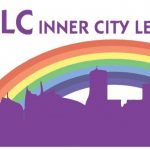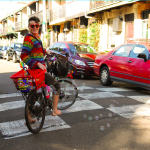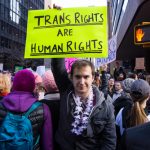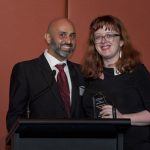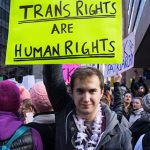Rallying for the Trans Day of Visibility: An Interview With Trans Action Warrang
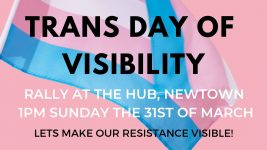
This Sunday, 31 March, is the International Day of Transgender Visibility, which is a time to celebrate the lives of transgender and gender diverse people globally, as well as acknowledge leaders within trans communities who’ve spoken out against discrimination and fought for hard won gains.
In Australia, trans visibility has been on the rise over recent years. And with this, have come other positive developments. On 6 June last year, the NSW parliament passed legislation allowing married trans people to change the gender on their birth certificate without having to divorce first.
While in November 2017, the full bench of the Family Court of Australia ruled that an individual under the age of 18 no longer needs to seek court approval to undergo stage two hormone treatment, which was a decision that brought the country into line with the rest of the world.
And Norrie’s 2014 High Court win must be remembered as a ground-breaking moment for gender diverse people, as the court ruled that they could legally register their sex as “non-specific” at the NSW Registry of Births, Deaths and Marriages.
Assaults on diversity
However, over this same timeframe, there’s been a global rise in politics of the right. And these conservative forces have taken aim at marginalised communities, including transgender and gender diverse peoples.
The most obvious international example has been Donald Trump with his roll back on recently won rights of transgender students in US educational facilities, as well as his attempt to erase trans identity via a narrowing of the definition of sex.
On the home front, the incoming prime minister took a swipe at transgender kids last year. Morrison referred to school counsellors who assist trans children as “gender whispers”. And he also referred to an inclusive Victorian school program on teen sexuality as making his “skin curl”.
While in this state, transphobic Mark Latham has just been elected into the NSW Legislative Council. And only a fortnight ago, the One Nation member described trans people self-identifying as an “evil political program to make young people confused and rise up”.
Building capacity within the community
And it’s against this backdrop that Trans Action Warrang has organised the Trans Day of Visibility Rally, which will be held this Sunday at 1 pm at the Hub – in the square just opposite the train station – in Sydney’s Newtown.
Established in November last year, Trans Action Warrang is a group of trans and gender diverse activists, who are mobilising in the face of the negative politicking that’s been transpiring, with the aim of preventing the erosion, and indeed, promoting the uplifting, of trans rights.
The group acknowledges that its organising takes place on the land of the Gadigal people of the Eora nation. And amongst the key issues it’s focusing on are improved health and mental health services, the plight of trans refugees and the reinstatement of Safe Schools.
Sydney Criminal Lawyers spoke with Trans Action Warrang spokespeople Hayden Moon and Sid Littlewood about what their group is seeking to achieve, both the positives and the negatives that have come with increasing visibility and the importance of decolonisation.
Firstly, Hayden and Sid, can you tell us a bit about what Trans Action Warrang does? And what it stand for?
Hayden: Trans Action Warrang is a trans autonomous group of activists. We’ve been working together to bring to light some of the issues that the trans community face. And fight for our rights, especially in the political climate as it is right now. There’s a lot of attacks on trans people.
We want to bring out support for our community, as well as creating equality, as there’s been a lot of decline in protest and fighting for rights since marriage equality. And we want to bring that back.
It’s our time. It’s trans people’s’ time for visibility and to fight for our rights.
Sid: Trans Action Warrang formed back in November around the Trans Day of Remembrance Rally.
We looked at that event that’s run by some of the organisations in Sydney and realised that a lot of people were excluded from going to that event, mainly because it was organised alongside NSW police.
A lot of trans people of colour, trans sex workers and other trans people didn’t feel comfortable attending that event, as there’s been a lot of violence perpetrated by police against trans people.
So, we wanted an autonomous group. A group of trans people representing our needs and not letting organisations speak for trans people, even though they may have our best interests at heart.
We decide what organisations we want to work alongside. And what kind of support we want to have. We’re a self-advocacy group that’s going to be working on a range of issues. We’re especially interested in fighting to get Safe Schools reinstated.
In terms of our political activity, we’re a newly formed group, so we don’t know where things are going to take us after our Trans Day of Visibility Rally. But, we’re really excited and we do have a few events and ideas in the works.
In your mission statement, you emphasise the sovereignty of First Nations peoples, as well as the impact trans rights issues have on Indigenous trans people.
Indeed, you use Warrang – the Gadigal word for the area now known as Sydney – in the name of your organisation.
Can you talk about the importance of this?
Hayden: I am a brother boy. I am a First Nations person. I’m from Wiradjuri country, which is up near Dubbo.
We are a very diverse collective. And we all support First Nations people. But, it’s very important for me personally, especially because of the atrocities that my community has faced.
Not only have we been through this trauma – and we continue to be affected by the trauma and the effects of colonisation – but Aboriginal and Torres Strait Islander people are more repressed, and we deal with more struggles and a lot more discrimination than our white fella counterparts.
Trans First Nations people are at even more disadvantage.
It’s so important for people to remember that they’re on stolen land. And we’re the First Peoples of this country. We’re so discriminated against. And we’re disproportionately affected by the discrimination and the oppression.
All of the horrible things that happen in our communities are because of colonisation, because of the trauma, and because of our sovereignty never being ceded.
It’s really important that non-Indigenous people remember that. And constantly have in their minds that sovereignty was never ceded. That we’re disproportionately disadvantaged. And our rights are important.
Sid: On top of that, decolonisation is essential for any fight for trans rights. The gender binary system is largely a western colonial construct.
Throughout the world, there are a lot of Indigenous gender systems that recognise more than the two western binary genders of male and female.
And for that, decolonisation has to be central to our fight if we’re going to be looking at the way that gender is constructed and the effects of having that pressure to conform has on people.
Hayden: Can I just quickly add to that, something that my friends in the brother boy and sister girl communities would like to say is that gender binary arrived with the boats. Before the First Fleet – before colonisation – gender binary just didn’t exist.
My gender is not binary. But, when I explain to people that I’m a brother boy, they assume that means that I’m a binary trans man. And I have to explain that it’s an Indigenous gender and it’s not binary. Our culture doesn’t see gender in binary.
It’s really important that we do focus on decolonisation, and First Nations peoples’ rights, because the gender binary very much arrived with colonisation.
Over recent years, the trans community has risen in visibility, and there have been some positive gains. What sort of overall impact have these developments had for trans and gender diverse communities?
Hayden: They definitely have had a really positive impact. But, there’s also been a negative impact.
I would say that yes, there’s been some really good change, in terms of bringing about equality for trans people in Australia. There’s been some awesome changes with birth certificates and better understanding in the school system and the uni system.
So, there has been some really good changes. But, at the same time, there has been a lot of attacks that have come with those changes.
When we’ve spoken about Safe Schools, and we have spoken about accepting trans people, there has also been a lot of backlash to that. And that has affected our community in a really negative way.
With positive change, also comes a lot of negative rhetoric that really affects our community, and causes quite a lot of danger, especially to the mental health of our community.
It’s been a bit of troublesome time. And there’s definitely a really long way to go. But, the changes that have happened that are positive have really significantly helped our community. It’s helped young trans people to feel safe at school and uni.
I’ve definitely noticed from my friends in the community that access to employment has improved with these new employment strategies for getting more diversity and acceptance of more trans people.
So, there’s been a lot of change. But, there’s definitely a long way to go.
Sid: I’d just like to take this moment to really thank my trans elders. People that have worked to get legal recognition and the rights before us. Those people that have gone through the scrutiny.
And also, young people, like Georgie Stone, who has been a real role model for the young trans community. She’s about to start acting on Neighbours, which is really amazing to get that visibility out there, especially on a show that has such a conservative backing.
Visibility has been really important. But, there has been a lot of backlash. Legally, there’s a lot that could still be done.
Recently, there was a post that said, “Should trans people have to be sterilised in order to be recognised.” That received a lot of backlash for being awful.
But, actually that’s pretty much the status quo at the moment. If you want to be legally recognised as a trans woman or a trans man, you have to have undergone hormone replacement, or gender affirmation surgery, which basically does sterilise trans people.
This varies from state to state around Australia. But, at the moment, there’s no way, as a non-binary trans person, for me to be legally recognised as being trans and to have my gender validated.
If I did want to get my gender validated and move towards a different gender than my assigned gender, I would have to go through some kind of process that would effectively lead to my sterilisation.
That’s something that’s really concerning. And for those in the legal profession, it would be really great to see some work towards changing that.
Hayden: In NSW, you have to have had surgery. In some other states, you can just have hormone replacement, but even that is a problem.
In certain states in Australia, it’s even more invasive. Trans people need to have gender reassignment surgery and then literally go to two separate general practitioners and show them their genitals to prove that they’ve had surgery, in order to have their gender changed on their birth certificate.
It’s very invasive and it really needs to change.
As you’ve already touched upon, with this rising visibility, attacks have come from conservative elements. What do you two think about the rise in these far-right attacks?
Hayden: It’s a huge thing, and that’s why we’re organising this rally, because it’s so important to respond to these attacks.
With the visibility has come a lot of vulnerability. There’s a massive target on our backs. As much as we’re trying to be visible and get our issues across, that visibility leads to a huge target.
When I heard Mark Latham’s comments about trans people needing to realise that they’re being mutilated, I was horrified. People listen to that sort of stuff. And it spreads hatred. It spreads violence. It causes a lot of difficulty for our community.
That’s what the problem is: our rights are rising, but at the same time they’re being squashed. The only way that we can cope with that is to keep fighting, to keep rallying and to keep protesting and signing petitions.
A lot of great LGBT organisations are running campaigns. It’s just so important that we do rise up against the old right and against conservatives. Because we’re just people, trying to live our lives.
I personally, as a trans person, am so confused as to why these people are so obsessed with what we can and can’t have, and what our genitals look like. It’s ridiculous.
And the only way to deal with that is to raise awareness. And to get the truth out there about what we really need as trans people, who we are and to stop this negative, and completely incorrect, information being spread about us.
Sid: What do I think accounts for this rise in conservative attacks? With any move towards rights there has always been a considerable backlash.
We’ve seen that across all areas of struggle – whether it is black lives matter or the suffragettes – we see an increase in backlash and violence.
So, campaigning for trans rights is actually a fight. It creates conflict, as we challenge aspects of what is seen as mainstream and we breakdown hegemonic ideas, people find that challenging. People don’t like to have their worldviews challenged and to give up space.
If we have a look at Scott Morrison’s comment on International Women’s Day about wanting equal rights for women, as long as they’re not taking a place at the table. We see that.
People see that when they give others, and allow others, their rights that it infringes upon what they see as their own freedom, because there does need to be room made at the table.
At the moment, we see trans people having very high rates of homelessness, suicide and mental health, but we also see employment being a huge area where trans people are left out, with only one in five people being employed if you look at a recent article that SBS just put out and the research it was based on.
This isn’t a battle of ideologies. The rhetoric that we are seeing, and hate being spread about transgender and gender diverse people, have real effects on trans people’s lives.
Unlike what Mark Latham is saying about something being inherently wrong with transgender people, we know from medical professionals and studies, such as the Trans Pathways study, that many of the issues our community is facing is due to social exclusion as a result of social norms, how we are seen in general, family rejection, bullying at schools, TAFEs and universities, peer rejection and a lack of support.
One of the key issues that Trans Action Warrang has raised is the over-policing of trans people. Can you talk on that?
Sid: Studies about the over-policing of trans people have been very hard to pin down. They say that trans people aren’t experiencing over-policing. But, we know that this is anecdotally not the case, as we are hearing about it amongst trans people themselves, because it intersects with other issues.
Trans people face a really high rate of mental illness. And we know that one in two trans people have tried to attempt suicide. So, when police are called to respond, these people are getting treated very poorly. They’re being misgendered. And they’re being laughed at.
I’ve had friends who’ve called up needing mental health crisis support and been called a fag and the T-word. It’s really bad.
So, while people are saying that trans people aren’t being targeted, the fact that our communities have high rates of substance use, and high rates of mental health issues leads to this. A lot of trans people are sex workers and the over-policing that occurs to racialised trans people, we know that all of these issues have compounding effects.
As a whole, because of the other realities of poverty, homelessness and mental health, we know that trans people are coming into the contact with the police in a negative way for a number of reasons. And that’s having a really negative effect on our community.
Hayden: Just to add to that, we are being covered by police for those reasons. But, when police do come because of mental illness or because someone has been struggling with addiction, we are treated differently. And it’s really unfortunate, but it does happen. A cis person is more likely to get away with something than we are.
And especially, like myself, if you’re Aboriginal and trans, you’re in increasingly more danger and more likelihood of being put into custody. As a trans person of colour, as a trans Aboriginal person, you’re going to be treated more negatively than a white cisgender person.
Sid: There have also been reports of people having unnecessary strip searches, just so the police can ease their curiosity about who we really are, and who they are really dealing with, if they suspect you of being transgender.
That’s something I have heard reports about, which could be very traumatic, especially when you compound that with gender dysphoria.
And lastly, you’re holding the Trans Day of Visibility Rally in Newtown on Sunday. What can participants expect on the day?
Hayden: We’re very excited about it. What we’re planning to have on the day is a bunch of speeches starting at 1 pm at the Hub, opposite the train station in Newtown.
The speeches will be representing intersectional trans voices. We will have myself speaking. Sid will be MCing. We are going to have a sister girl speaking, trans people with disabilities, trans people who’ve experienced addiction, and trans sex workers.
So, trans people who represent multiple different aspects of being trans. We are not homogenised. We are all different. So, just to get as much voice and experiences across as possible, we are going to have intersectional trans people represented.
We will then have a performance by an awesome Aboriginal drag queen, who will lead into the march. We will be marching down King Street, ending at Hollis Park, where we will have a bunch of performances and a DJ.
We are fighting for our rights, but it’s also a celebration about community: of being together, with our cisgender allies and our trans community coming together, wearing glitter, wearing colours, having a great time with community and feeling loved and supported.
And we will be having a bit of a dance at the end as well.
Sid: This event is really about building capacity within the trans community. Visibility on our terms. For us to get to know each other, see each other, celebrate who we are, but also to get to talk about these issues that are important to us.
As Hayden mentioned, our speakers will be representing some of the issues that make us most marginalised. We will be talking about housing, homelessness, mental health: those kinds of effects.
We will be listing some support services on our Facebook page that will be posted before the day, because we know that hearing these stories can be quite triggering to an already vulnerable – but, very strong – group of people.
We want to rally and walk down the street. And people should come along if they care about trans rights. They should come along if they’re feeling isolated. If they want to meet other trans people, or people in the queer community. This is a great chance for us to meet each other and build capacity.
We would love for people to get involved in Trans Action Warrang, see it grow and get ideas about what they want our organisation to be that’s consistent with our mission to be an organisation that is anti-capitalist, has a critique of colonisation and looks at the different intersections of ways that different oppressions affect people.


